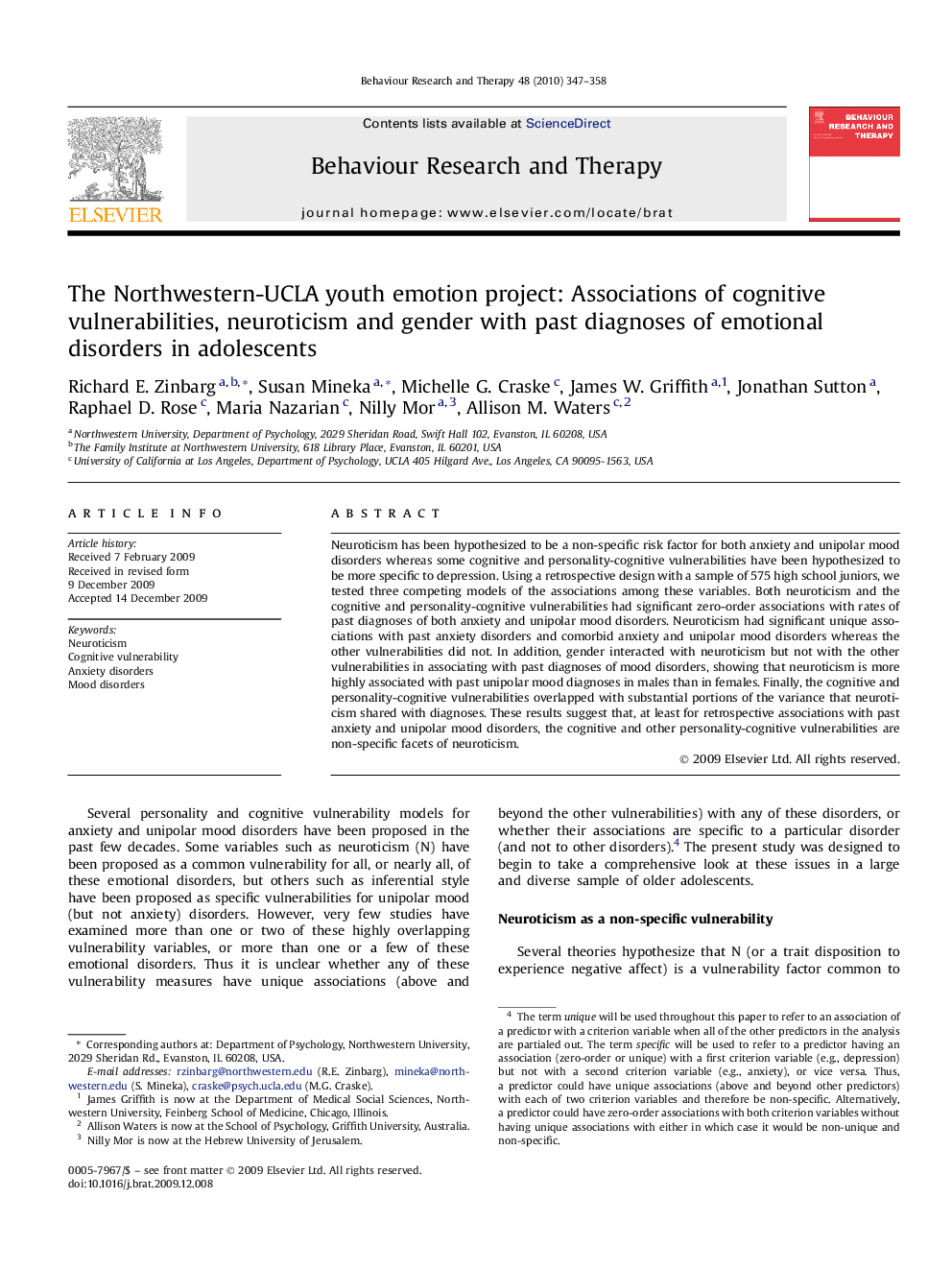| Article ID | Journal | Published Year | Pages | File Type |
|---|---|---|---|---|
| 10444666 | Behaviour Research and Therapy | 2010 | 12 Pages |
Abstract
Neuroticism has been hypothesized to be a non-specific risk factor for both anxiety and unipolar mood disorders whereas some cognitive and personality-cognitive vulnerabilities have been hypothesized to be more specific to depression. Using a retrospective design with a sample of 575 high school juniors, we tested three competing models of the associations among these variables. Both neuroticism and the cognitive and personality-cognitive vulnerabilities had significant zero-order associations with rates of past diagnoses of both anxiety and unipolar mood disorders. Neuroticism had significant unique associations with past anxiety disorders and comorbid anxiety and unipolar mood disorders whereas the other vulnerabilities did not. In addition, gender interacted with neuroticism but not with the other vulnerabilities in associating with past diagnoses of mood disorders, showing that neuroticism is more highly associated with past unipolar mood diagnoses in males than in females. Finally, the cognitive and personality-cognitive vulnerabilities overlapped with substantial portions of the variance that neuroticism shared with diagnoses. These results suggest that, at least for retrospective associations with past anxiety and unipolar mood disorders, the cognitive and other personality-cognitive vulnerabilities are non-specific facets of neuroticism.
Related Topics
Health Sciences
Medicine and Dentistry
Psychiatry and Mental Health
Authors
Richard E. Zinbarg, Susan Mineka, Michelle G. Craske, James W. Griffith, Jonathan Sutton, Raphael D. Rose, Maria Nazarian, Nilly Mor, Allison M. Waters,
